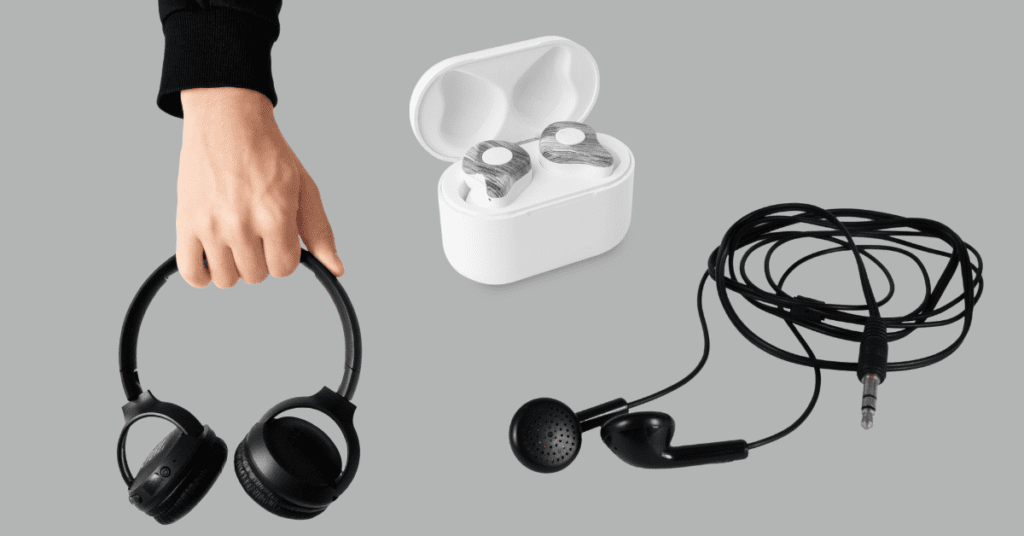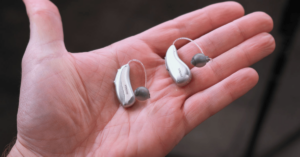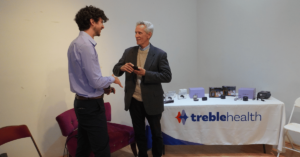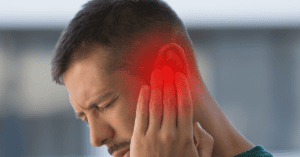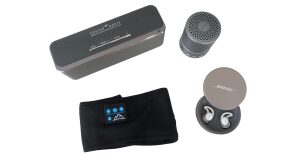Whether you enjoy immersing yourself in your favorite music or tuning in to the latest podcasts, your headphones probably get a lot of use. If you experience tinnitus or notice yourself turning up the volume more often, you might be wondering if your listening habits are impacting your hearing Unsafe headphone use can lead to noise-induced hearing loss and other hearing changes, and addressing these concerns early can minimize your risks and protect your hearing.
Understanding Hearing Loss
Hearing loss has many causes, ranging from natural age-related hearing changes (presbycusis) to the impacts of loud noise exposure. Furthermore, injuries, infections, ototoxic medications, and certain medical conditions can contribute to temporary or permanent hearing loss. Since there are so many factors involved, it’s important to take steps to protect your hearing throughout your life.
At the core of the auditory system is the cochlea – a spiral-shaped, fluid-filled structure that transforms sound vibrations into electrical signals that the brain interprets as sound. Inside the cochlea, tiny hair cells play a pivotal role in translating these vibrations into auditory information. These hair cells are very sensitive and fragile, and they can become damaged over time – resulting in hearing loss or tinnitus. Damage may also happen in the connection between the hair cells and nerve cells, which can be interrupted by excess sound, even if the hair cells remain normal. Hair cells do not grow back and can’t heal, so it’s essential to practice safe headphone listening habits.
Signs Of Hearing Loss
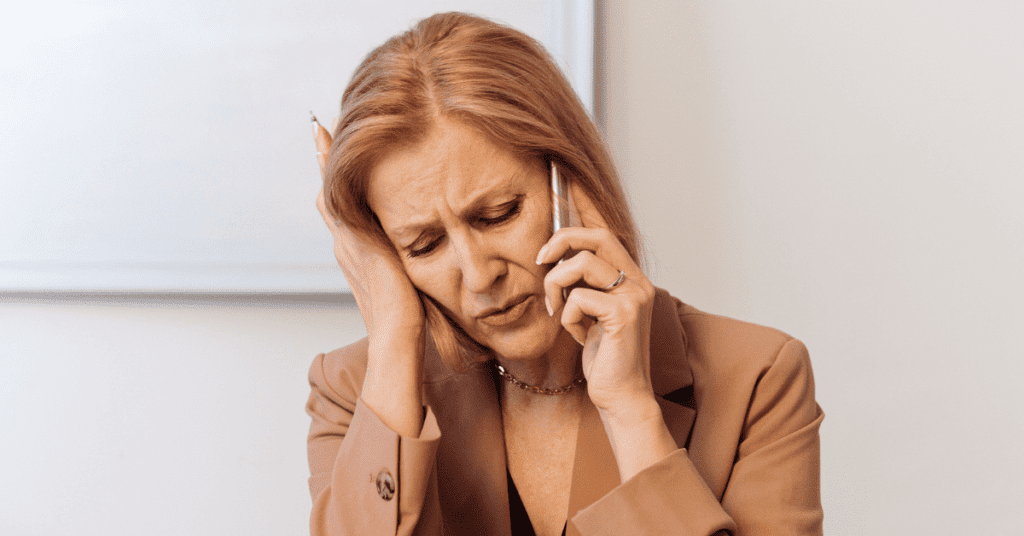
Hearing loss can be so gradual that it may not be noticed it until it has a significant impact on your day-to-day life. In fact, other people in your life may notice your hearing trouble before you do. If you notice any of the following signs of hearing loss, make sure to talk to your doctor or audiologist as soon as possible.
- Difficulty following a conversation, especially in noisy settings.
- It seems as if people are always mumbling when speaking.
- Trouble hearing people on the phone.
- Feeling like you can hear, but you can’t understand what’s being said.
- Difficulty identifying where a sound is coming from.
- Increasing the volume on television, radio, or headphones.
- Hypersensitivity to certain sounds.
- Hearing a ringing in your ears (tinnitus).
How Can Sound Cause Hearing Loss?
It doesn’t matter if you use your headphones to listen to music, television, podcasts, work meetings, or audiobooks – too much sound for too long can damage your hearing.
No matter the source, sound waves enter the ear canal from the outer ear, travel through the middle ear and into the inner ear. Sound waves cause several parts of the ear to vibrate: the eardrum (tympanic membrane), tiny bones in the middle ear (ossicles), and then the specialized hair cells in the cochlea are stimulated.
When you use headphones, these sound waves are directed right into your ear. If you use earbuds, you bypass the outer ear and send the sound directly to the middle ear. Even though you might not notice the impact of listening right away, prolonged exposure to loud sounds – especially at close proximity – can gradually take its toll. Aside from headphone use, some of the loud sounds that commonly cause hearing loss include:
- Concerts
- Sporting events
- Heavy machinery
- Power tools
- Sirens and alarms
- Fitness classes
- Firearms and fireworks
Understanding The Risk Of Noise-Induced Hearing Loss
Anyone at any age can develop hearing loss, but some people are more susceptible to hearing damage than others. Certain conditions and influences can increase your risk for noise-induced hearing loss:
- A family history of hearing loss
- Ear infections
- Diabetes
- High blood pressure
- Ear or head injuries
- Exposure to certain chemicals and toxins
- Ototoxic medications
Some people are at risk of noise-induced hearing loss due to their environment, such as those that live or work in noisy environments or engage in especially noisy activities. For example, musicians, hunters, machinists, and military personnel are more likely to have hearing damage due to loud noise exposure.
Learn Safe Headphone Habits
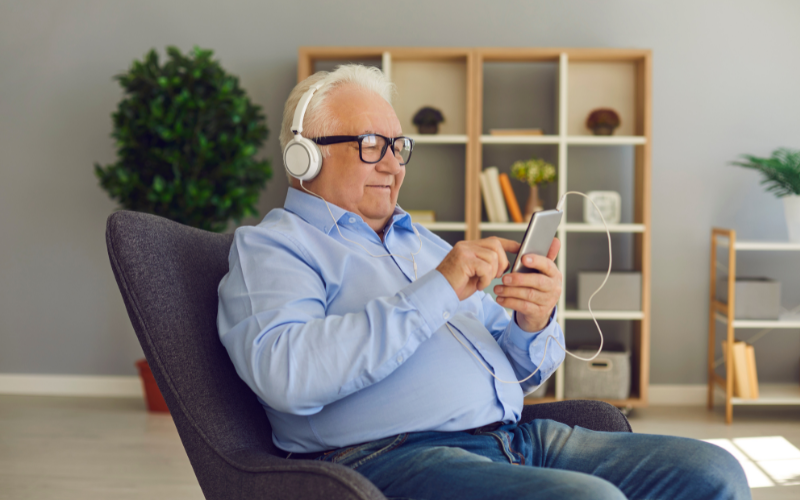
It is possible to use headphones to enjoy your favorite audio without damaging your hearing. The key is understanding the importance of volume, listening time, hygiene, and choosing the right headphones for you.
Keep The Volume Under Control
How loud is too loud? Simply put: if you think it sounds too loud, then it IS too loud.
Sound is measured in decibels (abbreviated dB), and this logarithmic measurement is a good way to estimate the intensity of a sound. Compare the decibel levels of these common sounds:
- 10 dB – Normal breathing sounds
- 30 dB – Whispering
- 60 dB – Normal conversation
- 85 dB – Lawnmower or leaf blower
- 95 dB – Motorcycle engine revving
- 110 dB – Loud rock concert
- 130 dB – Jackhammer
Soft sounds like normal conversations, quiet music, or the sounds of your daily routine are unlikely to cause any damage to your hearing. However, above 70 dB, prolonged noise exposure may start to damage your hearing. Music above 85 dB can cause damage after two hours of exposure, sounds of 105 to 110 dB can cause damage to the hair cells within five minutes, and noise above 120 dB can cause immediate harm.
To prevent noise-induced hearing loss, the U.S. Environmental Protection Agency (EPA) and the World Health Organization (WHO) recommend keeping environmental noises below 70 dBA throughout the course of the day. It is also important to note that the maximum volume of typical headphones or earbuds is above the threshold at which damage can occur to both children and adults.
Avoid Prolonged Noise Exposure

How long is too long? It’s not just the volume of your music that can impact your hearing – the duration of sound exposure can contribute to hearing damage as well.
For example, Occupational Safety and Health Administration (OSHA) regulations indicate that employers must offer hearing protection if employees are exposed to 85 dB environmental sounds for eight hours a day. However, listening to headphones at this level or higher can cause hearing damage in just one hour.
As a rule of thumb, it is usually safe to listen to headphones for no longer than 60 minutes per day, and the volume should always be kept at 60% or lower. Be sure to take frequent breaks and avoid falling asleep with headphones on.
Keep Your Earbuds Clean
Even if you’re sticking to safe listening habits and keeping the volume at a reasonable level, you may still be putting your hearing in jeopardy if you use your headphones improperly. Every time you insert your favorite pair of ear buds, you are trapping moisture, germs, and earwax inside your ear canal. It is crucial to take the time to clean your earbuds to avoid inner ear infection, inflammation, and earwax blockages.
Which Is Better: Over The Ear Headphones Or Earbuds?
Deciding which kind of headphones you prefer is more than just a style choice. Earbuds direct sound straight into your ear canal, which increases the risk of noise-induced hearing loss, while over the ear headphones dissipate this sound, which tends to be safer. Additionally, over the ear headphones often have noise-canceling or sound isolating qualities, so you’ll be less likely to crank up the volume to drown out background noise.
Studies Exploring Headphone Habits And Hearing Loss
Hearing loss becomes more common as we get older, but hearing loss can affect people at any age. Since teens and young adults tend to enjoy listening to music for fun, there have been several studies exploring the possibility that this habit could lead to hearing changes.
Headphone Listening Habits And Hearing Thresholds In Swedish Adolescents

In 2017, a Swedish study looked at the music listening habits of young adults with hearing problems. Most participants listened to music through headphones at moderate sound levels, and about 10% of the participants listened at higher volume and for longer periods of time – even while they were sleeping. The study showed that people who listened every day had poorer hearing thresholds, more hearing problems, and were more likely to develop tinnitus.
Epidemiology And Risk Factors For Hearing Damage Among Adults Using Headphones Via Mobile Applications
This recent study investigated hearing impairment among young people and discovered that a high percentage had hearing damage. These participants used headphones and other devices for music, gaming, television, and more. Subclinical hearing loss – that is, hearing that is impaired but still within the range of normal – was seen in over 80% of headphone users in this study.
Associations Between Adolescents’ Earphone Usage In Noisy Environments, Hearing Loss, And Self-Reported Hearing Problems In A Nationally Representative Sample Of South Korean Middle And High School Students
Another study explored the relationship between headphone use and hearing loss in teenagers. This study found that listening to music with headphones for 80 minutes or more per day while in a noisy environment quadruples the risk of hearing loss. In fact, this study showed that almost a quarter of adolescents aged 12-19 experienced hearing loss from these unsafe listening habits.
Practicing Headphone Safety And Good Listening Habits
Hearing loss due to loud noise exposure is irreversible, but it is preventable. Know the warning signs of hearing loss and be sure to get evaluated by your audiologist if your hearing changes or you have concerns about your hearing health. If you take steps to protect your hearing and stay aware of your listening habits, wearing headphones to enjoy your favorite music, podcast, or audio can be perfectly safe.
- Be aware of how loud the sound is and how long you’re listening. Some smart watches and phones now have features that will alert you when the volume of your environment or headphones reaches unsafe listening levels. Refer to your device settings to enable these features if available.
- Don’t listen using your device’s maximum volume setting. A quick rule of thumb is that with headphones on you should be able to hear someone speaking to you from an arm’s length while listening to headphones
- Listen at a lower volume if you’re going to use headphones for a long time.
- Take regular breaks from listening.
- Consider using noise-canceling headphones to keep the volume lower. This is especially important when trying to enjoy music while using loud equipment like lawn mowers and power tools.
- Don’t try to drown out ambient noise with your headphones, especially if you’re using earbuds.
- Use hearing protection in noisy environments. Your audiologist may be able to create custom hearing protection for you.
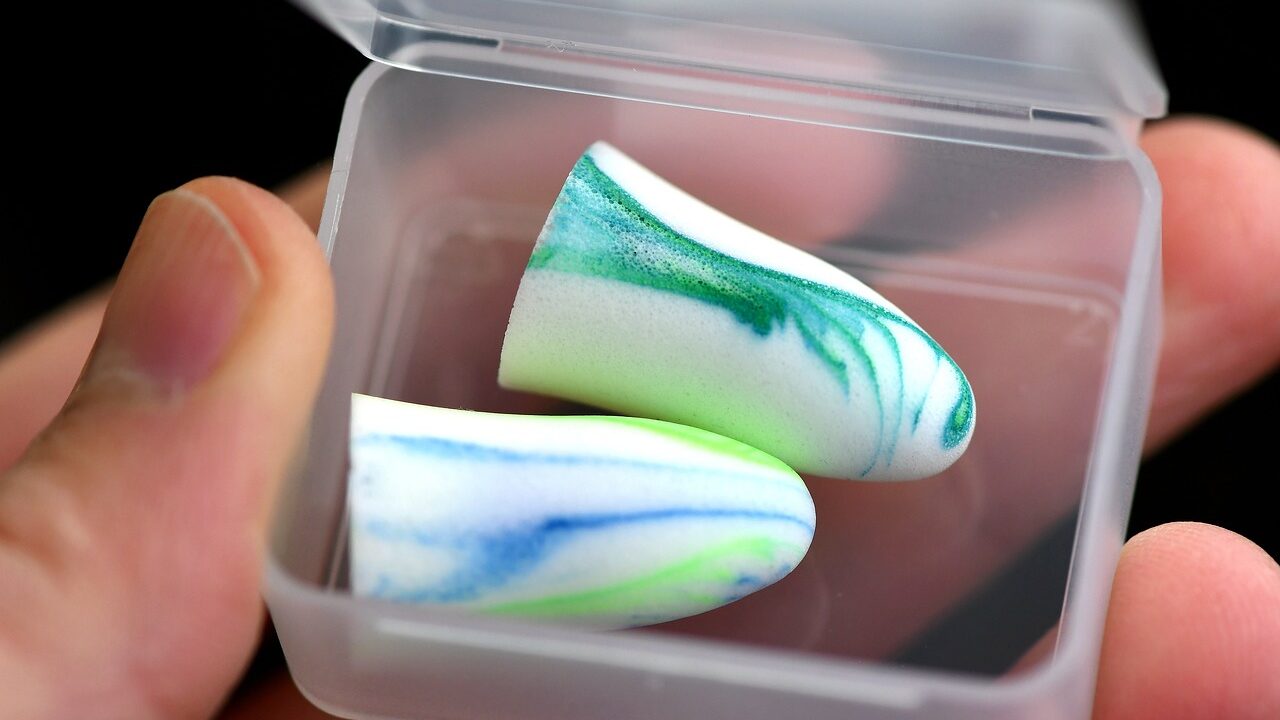
You may also wish to use safe volume limits on your smartphone. Using a high volume limiter when wearing headphones and earbuds is a good way to track your listening habits. You may also wish to consider installing a sound level meter (SLM) to measure the noise around you. These apps are good choices for estimating decibel levels:
- NIOSH Sound Level Meter App (iOS)
- NoiSee (iOS)
- SLPnFFT Noise Meter (iOS)
- Sound Meter X (iOS)
- Sound Meter (Android)
- SoundPrint (iOS and Android)
If you’re struggling with hearing loss, talk to your doctor or audiologist about treatment options like hearing aids. While hearing loss is not curable, there are numerous ways to treat it and live a healthy, productive life full of sound.





